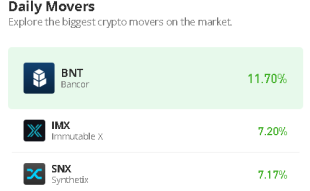Join Our Telegram channel to stay up to date on breaking news coverage
- What – The crypto space has been flooded with several theft cases, such as money laundering and hack incidents, over the years and recently.
- Why – But despite the move of global authorities to curb the situation, there are still loopholes through which the culprits perform their exploits.
- What Next – A recent report by Tech Crunch revealed that the Indian Enforcement Directorate has been making moves to stop such actions, seizing over 115 million dollars throughout the process. It’s now left to be seen how this move will impact its crypto industry.
Indian’s ED Commits To Crypto Laundering Cases
The report noted that the total crypto funds the Indian Enforcement Directorate realized during investigations amounted to $115.5 million. According to its Ministry of Finance, the crypto space is already problematic, and these theft cases are worrisome. Nevertheless, authorities are doing enough to ensure the ecosystem has a good level of tranquillity.
The ministry also cited that five culprits of crypto laundering are already under the custody of the Indian crime-fighting agency. The agency further warned WazirX, a local crypto exchange, and its executives about expensive transactions on the platform, especially those over $338 million.
Meanwhile, the Indian government has already established some rules to monitor and improve the ongoing activities with digital assets. The ministry cited that digital currency dealings in the South Asian Market will receive support from anti-laundering regulations. This move aims to ensure a secure environment where crypto transactions occur.
As such, NFT providers, crypto exchanges, and custody wallet providers are to ensure proper investigations of financial activities. Each of these organizations has a specific role to play in ensuring the effectiveness of the rules. Wallet providers and crypto exchanges are to oversee the use of AML/CFT controls.
Meanwhile, the national authorities will license, register, and supervise the AML/CFT controls. On the other hand, companies operating in the digital currency environment are to oversee the KYC process of customers. However, some regions, such as New Delhi, resist these regulations.
India’s Commitments To Digital Currencies
India has been showing significant interest in digital currencies, especially in the safety of investors. This is evident in a statement that showed the country’s intention to create a regulatory framework. Based on the report, the framework aimed to support the global regulation of unregistered and fraudulent stablecoins, digital assets, and DeFi (decentralized finance).
Last year, the capital state made a severe move by placing a 30% tax on Virtual Digital Assets (VDAs) gain, i.e., crypto and NFT. It also deducted about 1% for every transaction performed with digital currencies at the time. The tax and the ongoing crypto winter in 2022 during the same period affected many platforms, including CoinDCX, Andreessen Horowitz, and CoinSwitch Kuber.
All crypto businesses in the country would come under ambit of PMLA
This is a good step towards regulating the crypto industry in India
This also ensures all crypto businesses must perform necessary KYC, transaction monitoring etc as part of their process.
Good progress ✌️ pic.twitter.com/lVhs5LWG4I
— Nischal (Shardeum) 🔼 (@NischalShetty) March 8, 2023
Also, some days back, the Ministry of Finance notified that its anti-money laws will now apply to crypto trades. A Twitter user shared the notification on March 8, and Reuters reported it the same day.
Read more:
Join Our Telegram channel to stay up to date on breaking news coverage


